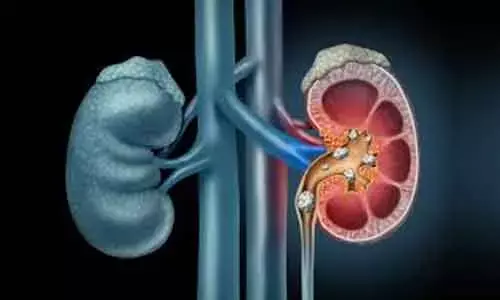- Home
- Medical news & Guidelines
- Anesthesiology
- Cardiology and CTVS
- Critical Care
- Dentistry
- Dermatology
- Diabetes and Endocrinology
- ENT
- Gastroenterology
- Medicine
- Nephrology
- Neurology
- Obstretics-Gynaecology
- Oncology
- Ophthalmology
- Orthopaedics
- Pediatrics-Neonatology
- Psychiatry
- Pulmonology
- Radiology
- Surgery
- Urology
- Laboratory Medicine
- Diet
- Nursing
- Paramedical
- Physiotherapy
- Health news
- Fact Check
- Bone Health Fact Check
- Brain Health Fact Check
- Cancer Related Fact Check
- Child Care Fact Check
- Dental and oral health fact check
- Diabetes and metabolic health fact check
- Diet and Nutrition Fact Check
- Eye and ENT Care Fact Check
- Fitness fact check
- Gut health fact check
- Heart health fact check
- Kidney health fact check
- Medical education fact check
- Men's health fact check
- Respiratory fact check
- Skin and hair care fact check
- Vaccine and Immunization fact check
- Women's health fact check
- AYUSH
- State News
- Andaman and Nicobar Islands
- Andhra Pradesh
- Arunachal Pradesh
- Assam
- Bihar
- Chandigarh
- Chattisgarh
- Dadra and Nagar Haveli
- Daman and Diu
- Delhi
- Goa
- Gujarat
- Haryana
- Himachal Pradesh
- Jammu & Kashmir
- Jharkhand
- Karnataka
- Kerala
- Ladakh
- Lakshadweep
- Madhya Pradesh
- Maharashtra
- Manipur
- Meghalaya
- Mizoram
- Nagaland
- Odisha
- Puducherry
- Punjab
- Rajasthan
- Sikkim
- Tamil Nadu
- Telangana
- Tripura
- Uttar Pradesh
- Uttrakhand
- West Bengal
- Medical Education
- Industry
Older adults with kidney stones at higher risk for fractures: Study

USA: Older people with kidney or ureteral stones are at increased risk of fracture or osteoporosis, according to a recent study in the Journal of Bone and Mineral Research.
The findings call for a wider use of BMD screening in people with kidney stone disease, including middle‐aged and older men.
Calyani Ganesan, Division of Nephrology, Stanford University, Stanford, CA, USA, and colleagues aimed to uncover the possible link between kidney stone disease and osteoporosis or fractures.
For the purpose, the researchers performed a retrospective cohort study, in which they determined the prevalence of osteoporosis and fractures and rate of bone mineral density screening by dual‐energy X‐ray absorptiometry (DXA) among patients with kidney stone disease.
A total of 531,431 patients with kidney stone disease were identified from Veterans Health Administration between 2007 and 2015. After examining the patients, the researchers found that:
- Nearly 1 in 4 patients (23.6%) with kidney stone disease had a prevalent diagnosis of osteoporosis or fracture.
- In patients with no prior history of osteoporosis or bone mineral density assessment before a kidney stone diagnosis, 9.1% were screened with DXA after their kidney stone diagnosis, of whom 20% were subsequently diagnosed with osteoporosis.
Also Read: Patients with psoriatic disease more likely to develop fractures, Finds study
"We hope this work raises awareness regarding the possibility of reduced bone strength in patients with kidney stones. In our future work, we hope to identify which patients with kidney stones are at higher risk for osteoporosis or fracture to help guide bone density screening efforts by clinicians in this population," Ganesan said in a statement.
"Our findings provide support for wider use of bone mineral density screening in patients with kidney stone disease, including middle‐aged and older men, a group less well recognized as at risk for osteoporosis or fractures," wrote the authors.
The study titled, "Osteoporosis, Fractures, and Bone Mineral Density Screening in Veterans With Kidney Stone Disease," is published in the Journal of Bone and Mineral Research.
DOI: https://asbmr.onlinelibrary.wiley.com/doi/10.1002/jbmr.4260
Dr Kamal Kant Kohli-MBBS, DTCD- a chest specialist with more than 30 years of practice and a flair for writing clinical articles, Dr Kamal Kant Kohli joined Medical Dialogues as a Chief Editor of Medical News. Besides writing articles, as an editor, he proofreads and verifies all the medical content published on Medical Dialogues including those coming from journals, studies,medical conferences,guidelines etc. Email: drkohli@medicaldialogues.in. Contact no. 011-43720751


